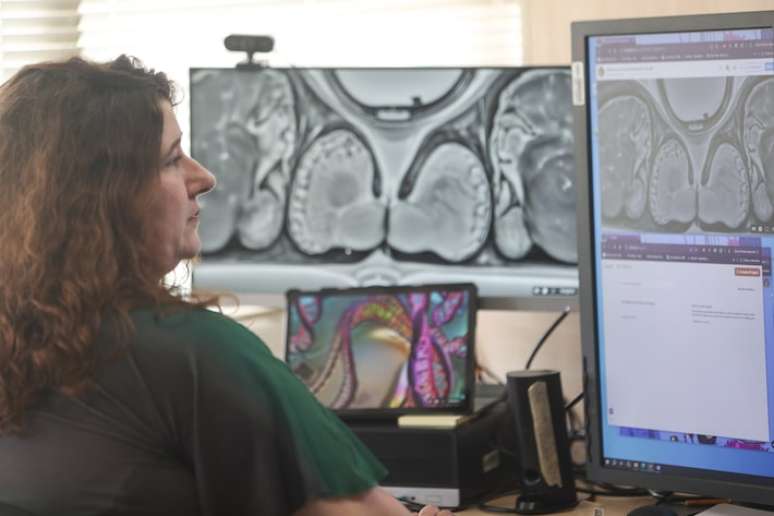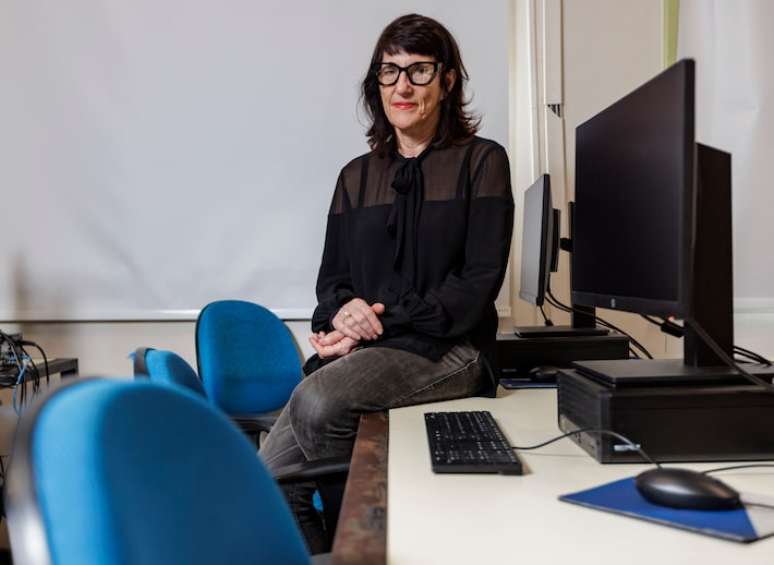The popularization of artificial intelligence raises debate about the actions taken by educational institutions in order to create a consensus on the best use
The ability of artificial intelligence to rapidly process and analyze large volumes of data is increasingly present in the natural sciences. This was recently highlighted by the Nobel Prize in Chemistry and Physics, highlighting the leading role of AI in scientific discoveries. That said, there is debate as to whether universities in these areas should prepare teachers and students to use this technology effectively and thoughtfully in their daily lives.
The term artificial intelligence has been around since the 1950s, but has become popular in recent years due to the large volume of data available, advanced algorithms, and improvements in computational processing with the advent of GPUs.
Even in the field of scientific research, for example, the use of artificial intelligence is nothing new. “Research in experimental physics, for example, involves identifying patterns in large data sets, and the statistical techniques capable of handling this large volume of data are those enabled by artificial intelligence, particularly learning techniques automatic,” says professor of the postgraduate Intelligence Technologies and Digital Design (TIDD) program at the Pontifical Catholic University of São Paulo (PUC SP), Dora Kaufman.
“In recent years we have experienced an acceleration, rather than growth, because a new class of algorithms has emerged in the field of artificial intelligence, called generative AI (which uses machine learning to create content, such as texts, images, music or video)”, explains Ney Lemke, head of the Coordination of Information Technologies (CTInf) of the Universidade Estadual Paulista (Unesp) and professor of the university’s Institute of Biosciences.
Until then these interfaces were already used, but it was still a very limited issue to some communities. However, after these advances, many opportunities have emerged for their use in virtually every industry.
The natural sciences involve areas that work with natural phenomena. Through studies, professionals carry out interventions in order to obtain theoretical and practical models to understand how these things work. “Professionals work continuously with data. And the use of artificial intelligence can help to better qualify data, transforming it into evidence and thus building better models”, according to the assessment of Professor Paula Carolei, teacher of the Technology in Design Educational (TEDE) of the Federal University of Sao Paulo (Unifesp).

“We must work a lot on the quality of the data analysis and the models built from them, not only on a prediction or projection, as happened with predictive artificial intelligence, but on this new artificial intelligence, called generative, which does not only predicts, but creates, both visualizing patterns and helping to read more texts and correlate information better, creating new content from these connections,” says Professor Paula.
According to the Unifesp professor, however, to test and evaluate these models better and more quickly, in order to have more assertive, more creative and authorial technological proposals, it is necessary to understand that AI must help deal with the complexity of life and not artificially reduce the phenomena.
“I have been working with AI to support student ownership in learning and teacher ownership in their teaching actions. Learning patterns is complex and should not be simplified, but AI can help explain the relationships between data and variables, helping to understand both natural phenomena and technological proposals for innovation must be used in various ways, questioning the answers presented and refining the results, not only as direct questions and answers. , simplistic and immediate”, says the teacher of the Unifesp.
For Dora, with the spread of artificial intelligence, it becomes increasingly essential that universities begin to prepare professionals to use the technology. “Not only in the fields of natural sciences, but also in those of social sciences and humanities. The teaching structure of universities, not only in Brazil, but throughout the world, reflects the compartmentalized logic of the industrial economy; in the 21st century, artificial intelligence is strategic for any activity in any economic or knowledge sector”, says the professor.
Within PUC SP, in addition to the congresses that seek to encourage teachers and students to develop artificial intelligence projects, such as the fifth edition of the PUC SP and PUC Campinas AI Congress which took place on 6 and 7 November, courses are also organized to train teachers and staff. “It is a long process, it is not trivial, it also takes time to make cultural changes given that the functioning of artificial intelligence systems is very different from that of programmed systems. The first step is to overcome resistance, partly deriving from the fear of losing their jobs, being replaced by automation, or simply not being able to keep up with the speed of innovations,” he says.
According to Paula, despite not having more concrete and closed guidelines on how to apply AI in natural science subjects, teachers are researching AI and how to use the technology, exploring the potential of these interfaces.
“We are concerned about this technology which has already invaded all areas, and it is part of the university’s role to respond to social emergencies. In this movement it is not possible to define rules a priori but to build norms and proposals based on more research, courses and comparisons I myself have followed courses for students and teachers, in which we share experiences and challenges”, adds the Unifesp professor.
He argues that it is essential to prepare the student so that they understand that artificial intelligence can be a great ally, but cannot take over their role within the study. “We need to develop methodologies that help students to be more researchers and less decorators and reproducers of content. This methodological change is possible without having to change curricular guidelines,” reflects Paula.
A process of discussion on standards for artificial intelligence at universities has begun at Unesp. “We have to provide support to students and teachers who want or don’t want to use it. So, this has to be defined, otherwise soon people will start having problems. Some professors will consider this, for example, plagiarism, so the university will have to take a stand on the issue,” Lemke said.
Another point to explore is due to the progress of AI in the teaching context. “What is good for the world, inside the classroom, is not necessarily a good idea. For example, the technology that the teacher will use varies every week with a new version because there are many variations and the teacher has to adapt quickly”, says the Unesp professor.
«We have also invested in the sector linked to the training of university teachers, with various courses to prepare teachers. We want universities to give widespread access to artificial intelligence. We are discussing how to verbalize this. We will probably already have a prototype at the beginning of next year”, said Lemke. According to the Unesp professor, the university is preparing an institutional project also in this sense.
According to Dora, all citizens of the 21st century need to know the logic and functioning of artificial intelligence. “How artificial intelligence can help me better perform my activities as a student, teacher and researcher, and as a future market professional.”
For the PUC SP professor, although necessary, changing curricula is not simple, as it involves a process that must be guided by the Coordination for the Improvement of Higher Education Personnel (Capes), a body linked to the Ministry of Education ( MEC). “Public authorities – at federal, state and municipal levels – need to encourage curriculum changes with the participation of all stakeholders, examining how best to add AI to curricula in, for example, chemistry , physics, mathematics, engineering. With the exception of technology curricula, artificial intelligence must permeate all disciplines and not constitute an isolated discipline,” says PUC professor SP.
The MEC said it is part of the Brazilian Artificial Intelligence Plan (PBIA). “Three-year courses and disciplines, in addition to promoting research, inclusion and accessibility in teaching, are some of the proposals in the portfolio and which also cover the automatic availability of places in Data Science and AI courses in the Student Financing Fund (Fies ) Recently the Ministry, through the Secretariat for Information Management, Innovation and Evaluation of Educational Policies (Segape), promoted the Education, Data Governance and Artificial Intelligence Seminar with the objective of discussing the centrality of a data governance policy, aiming to guarantee its management on the basis of accurate, complete and reliable data.
Source: Terra
Rose James is a Gossipify movie and series reviewer known for her in-depth analysis and unique perspective on the latest releases. With a background in film studies, she provides engaging and informative reviews, and keeps readers up to date with industry trends and emerging talents.






